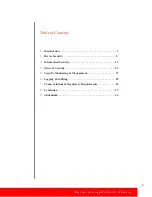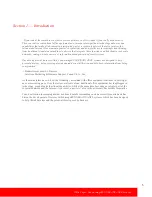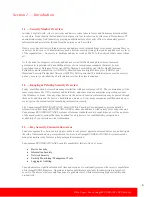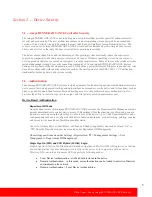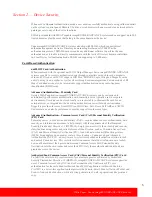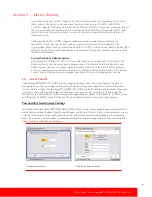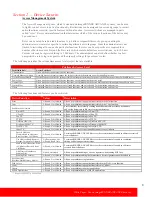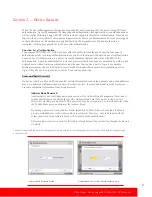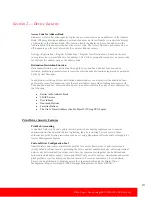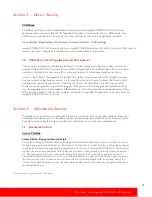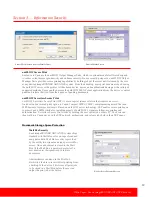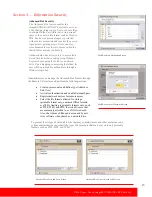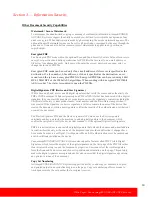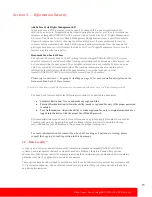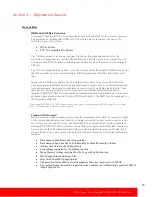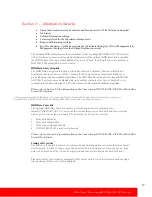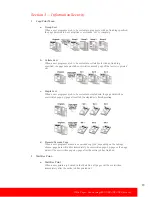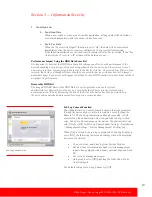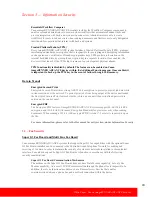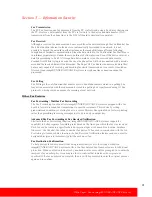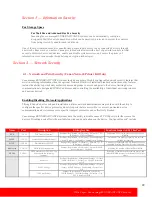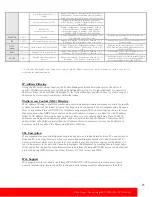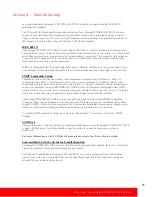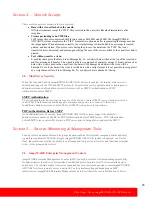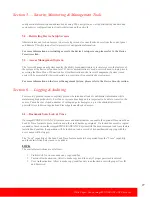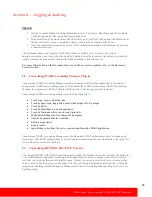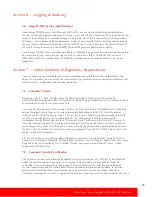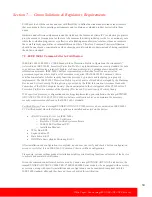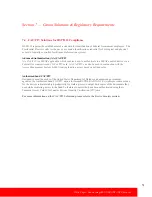
16
White Paper: Canon imageRUNNER ADVANCE Security
Section 3 — Information Security
Data at Rest
HDD and RAM Data Protection
All imageRUNNER ADVANCE systems require hard disk and RAM for their normal operation.
The partitions on the imageRUNNER ADVANCE hard disk are formatted with one of the
following types of file systems:
•
iR File System
•
FAT 32-Compatible File System
The “iR File System” is a Canon proprietary file system that was designed solely for the
processing of image files in a fast and efficient manner. This file system is not compatible with
commonly used PC file systems, and therefore analyzing its data at the sector level is extremely
difficult.
The “Fat-32 Compatible File-System” is the file system used by the imageRUNNER Advance for
the disk areas that store the system firmware, MEAP applications, Mail Box and Advance Box
files.
In general, it is difficult to analyze the data on these file systems at the sector level, however,
Canon recognizes that highly motivated and experienced attackers may try to obtain information
from environments where sensitive information is processed, by analyzing the hard disks from
these devices. In order to help protect your sensitive and confidential information Canon
imageRUNNER ADVANCE systems include a standard hard disk format utility, as well as more
advanced optional accessories, such as the HDD Data Erase Kit, the HDD Data Encryption Kit or
the Removable HDD Kit.
* Some imageRUNNER ADVANCE systems that are configured with the optional HDD Mirroring Kit for external
Print Controller may contain more than one disk
Standard HDD Format*
Best practices, and often company policies, usually recommend that systems be completely wiped
by the system administrator prior to the device being reallocated to a new location or prior to the
end of lease or at the end of its lease. The Hard Disk Drive Format feature, which is standard on
all imageRUNNER ADVANCE systems, is more than just a regular hard disk format function. It
not only deletes the File Allocation table (FAT) associated with all user areas on the disk, but it
also overwrites all user data areas on the hard disk with null characters. Overwritten information
includes:
•
Data stored in Mail Boxes and Advanced Box
•
Data stored in Fax/I-Fax Inbox (Confidential Fax Inbox/Memory RX Inbox)
•
Address data stored in the Address Book
•
Scan settings registered for the Sending function
•
Mode Memory settings registered for the Copy or Mail Box function
•
MEAP applications and license files
•
Data saved from MEAP applications
•
The password for the SMS (Service Management Service) login service of MEAP
•
User authentication information registered in the Local Device Authentication system of SSO-H
(Single Sign-On H)

